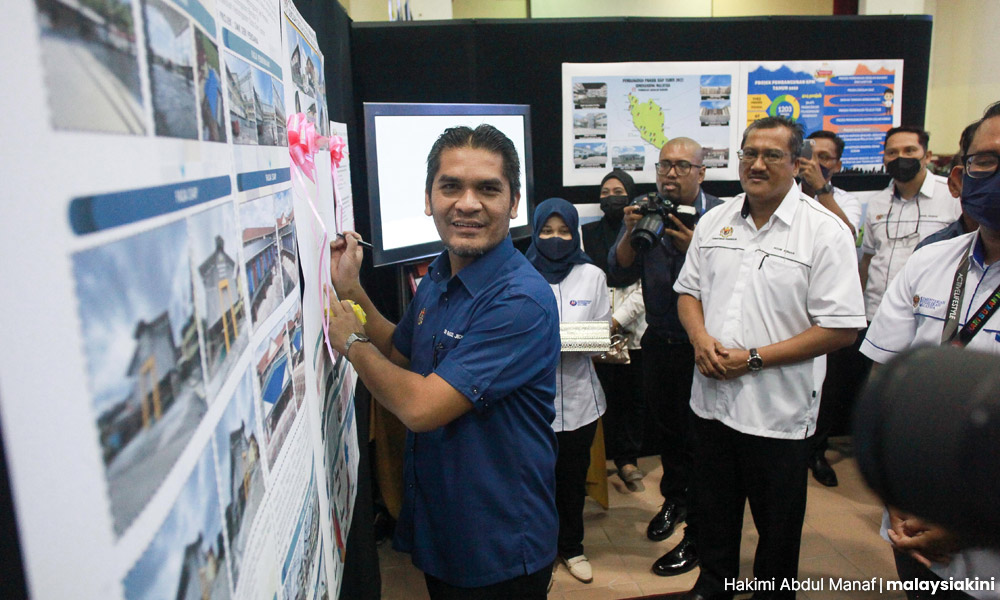The construction of new schools under the supervision of the Education Ministry will take into account design aspects that are conducive, easy to maintain and have an optimum impact on students and teachers, said Education Minister Mohd Radzi Md Jidin.
This included the frequently brought up issue of school toilet designs, the senior minister said, because existing facilities were based on wet toilets and did not have proper ventilation.
This has resulted in some students skipping breakfast just to avoid having to use the school toilets, Radzi added.
“In this context, we are looking at designs with better ventilation so that toilets can be dried faster and don’t smell,” he told the media after attending the “Education Transformation Council: Safe and Conducive Educational Infrastructure” today.
Radzi said new schools that will be built needed to focus on matters pertaining to basic infrastructure but able to have a big impact on the people using them and, at the same time, ensure every sen from the government allocation is properly spent.
“What’s important is that the designs must not focus on ‘cosmetics’ but ensure every allocation spent provides optimum impact.
"If we can reduce the costs of the unnecessary cosmetics, then the allocation that we have can be used for other developments,” he added.
The ministry will discuss with the Public Works Department (PWD) to determine the designs of new schools to be built and also new buildings to be constructed at existing schools.
"We go to the ground, we collect input and we discuss at the ministerial level first to see the implementation feasibility and then we’ll discuss with the PWD regarding the design for the projects to be carried out,” he said.
The ministry will also improve existing guidelines on contributions in the form of the construction of open halls and walkways to schools by outsiders.

This, Radzi said, was necessary because if not built according to specifications, it might cost more to make the changes later.
The guidelines needed to be improved to cut down on bureaucracy and thus speed up the filtering process carried out by the ministry over such contributions, he added.
School land ownership
In another development, Radzi said almost 30 percent of more than 2,000 schools nationwide had completed the legalisation process on land ownership.
The legalisation process was conducted to ensure all land ownership for the construction of Education Ministry-supervised schools belonged to the Lands and Mines Department director-general or the government.
According to the minister, of the more than 10,000 schools nationwide, it was found that the land ownership of over 2,000 of them did not belong to the department or the government.
“What has happened is that, for example, if payment was made in the 1980s, the grant has yet to be issued till today and the title has not been changed. It looks simple but as long as this matter is not resolved, if we are to do anything (development), other issues might crop up.
“So, we’ve decided to settle these land issues with the cooperation of state governments so that this matter can be resolved,” Radzi said.
- Bernama



No comments:
Post a Comment
Note: Only a member of this blog may post a comment.